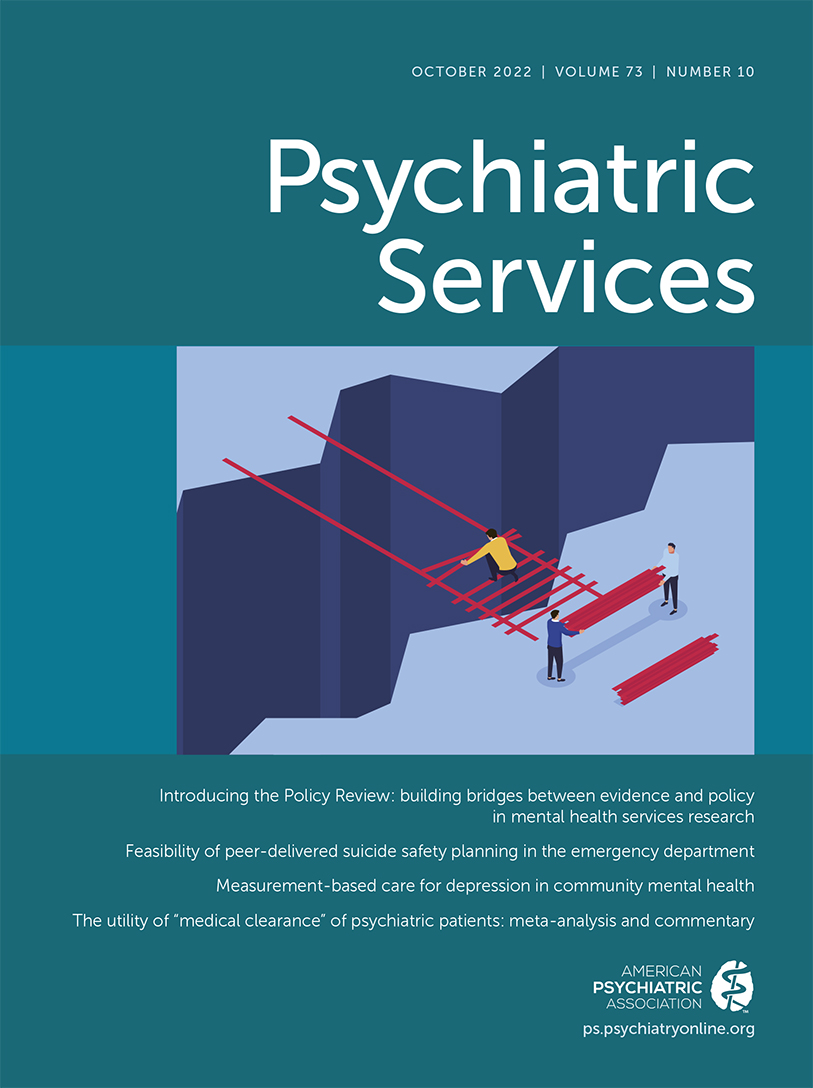Refugee Mental Health
This Editor’s Choice collection and others are available online in the Editor’s Choice section of ps.psychiatryonline.org.
Recent conflicts in Afghanistan, Ethiopia, and Ukraine have contributed to a growing population of refugees fleeing to safety. Many experience extreme life stressors during their journeys, including premigration violence, the trauma of forced migration, and postmigration stressors. Despite needing access to mental health care, many refugees face barriers to care.
Research has shown that integrating aspects of culture into care, such as incorporating customs or building pride in traditions, can improve mental health services for refugees. Studies of culture integration have shown favorable results, including an increase in utilization of mental health services when delivered alongside culturally congruent complementary and alternative medicine.
The first section of this collection offers studies describing symptom presentation and mental health service utilization among refugee populations. These studies highlight a high symptom burden and complex medical needs facing many refugees or migrants. Next are studies that have sought to improve mental health services for refugees by integrating culture and language capacity into mental health treatment. These studies highlight approaches to providing culturally congruent mental health care and showcase strategies that could be implemented to better serve refugee populations.
Mental Health of Refugees
COVID-19 and Mental Health Among People Who Are Forcibly Displaced: The Role of Socioeconomic Insecurity
Blay Benzaken Y, Zohar S, Yuval K, et al.
Psychiatr Serv (Epub July 14, 2022)
https://doi.org/10.1176/appi.ps.202200052
Representation of Asylum Seekers and Refugees Among Psychiatric Inpatients in London
Bhui K, Audini B, Singh S, Duffett R, M.D., et al.
Psychiatr Serv 2006; 57:270–272
https://doi.org/10.1176/appi.ps.57.2.270
Posttraumatic Stress Disorder Among Cuban Children and Adolescents After Release From a Refugee Camp
Rothe EM, Lewis J, Castillo-Matos H, et al.
Psychiatr Serv 2002; 53:970–976
https://doi.org/10.1176/appi.ps.53.8.970
HADStress: A Somatic Symptom Screen for Posttraumatic Stress Among Somali Refugees
Westermeyer JJ, Campbell R, Lien R, et al.
Psychiatr Serv 2010; 61:1132–1137
https://doi.org/10.1176/appi.ps.61.11.1132
Characterizing the Mental Health Care of U.S. Cambodian Refugees
Wong EC, Marshall GN, Schell TL, et al.
Psychiatr Serv 2015; 66:980–984
https://doi.org/10.1176/appi.ps.201400368
U.S. Cambodian Refugees’ Use of Complementary and Alternative Medicine for Mental Health Problems
Berthold SM, Wong EC, Schell TL, et al.
Psychiatr Serv 2007; 58:1212–1218
https://doi.org/10.1176/appi.ps.58.9.1212
Using the Cultural Formulation to Resolve Uncertainty in Diagnoses of Psychosis Among Ethnoculturally Diverse Patients
Adeponle AB, Thombs BD, Groleau D, et al.
Psychiatr Serv 2012; 63:147–153
https://doi.org/10.1176/appi.ps.201100280
Strategies to Incorporate Culture Into Mental Health Treatment
Culturally Congruent Intensive Case Management Service for Three Refugee Communities
Fang L, Sirotich F, Nikolova K
Psychiatr Serv 2018; 69:1116
https://doi.org/10.1176/appi.ps.201800082
Multiple-Family Group Treatment for English- and Vietnamese-Speaking Families Living With Schizophrenia
Bradley GM, Couchman GM, Perlesz A, et al.
Psychiatr Serv 2006; 57:521–530
https://doi.org/10.1176/appi.ps.57.4.521
Converting Cultural Capital Among Teen Refugees and Their Families From Bosnia-Herzegovina
Weine SM, Ware N, Klebic A
Psychiatr Serv 2004; 55:923–927
https://doi.org/10.1176/appi.ps.55.8.923
Interpreters in Transcultural Psychiatry
Skammeritz S, Sari N, Jiménez-Solomon O, et al.
Psychiatr Serv 2019; 70:250–253
https://doi.org/10.1176/appi.ps.201800107
Rethinking Interpreter Functions in Mental Health Services
Chang DF, Hsieh E, Somerville WB, et al.
Psychiatr Serv 2021; 72:353–357



